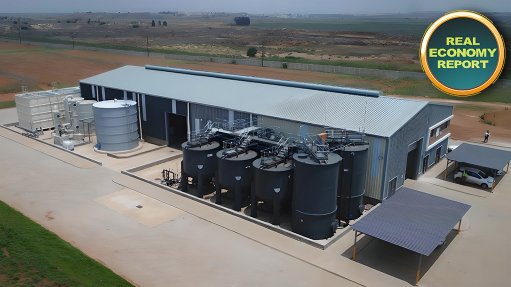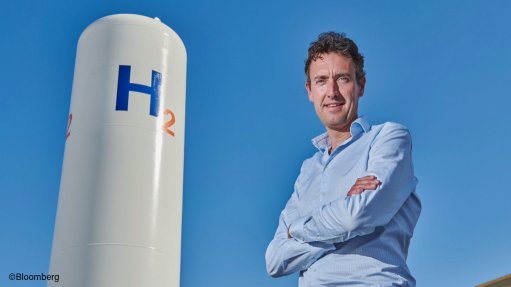President by default
It was a birthday present Bassirou Diomaye Faye would not have dreamed of – being announced the President-elect of Senegal on March 25, the day he turned 44, and only weeks after his release from prison, where he was serving time for contempt of court and defaming magistrates.
His release was courtesy of a blanket amnesty declared by outgoing President Macky Sall that also benefited charismatic politician Ousmane Sonko, his comrade in arms and former boss in the now disbanded Pastef opposition movement. Although Sonko won his freedom, he was barred from contesting in the March 24 elections because of the seriousness of the charge for which he was convicted – insurrection.
This cleared the way for Faye to emerge from the shadow of Sonko, who served as president of Pastef while Faye was secretary- general.
On being released, Sonko threw his weight behind Faye, saying in one of the many videos he distributed in the lead-up to the election: “I chose him because he meets the criteria that I have defined. He is competent and has attended the most prestigious school in Senegal. No one can say he is not honest.”
This message struck a chord with opposition supporters – drawn from a coalition of more than 100 parties – who would chant: “Doimaye is Sonko!”
What’s remarkable about Faye’s election as Senegal’s new President is not only that he got the top job by default; he is also Africa’s youngest elected President. Young (or shall I say relatively young) heads of State are something of a rarity on our continent, where politics is dominated by older people, some of whom are clearly in their dotage.
Currently, 34-year-old Ibrahim Traore, the strongman who is in charge in Burkina Faso, is the only African head of State who is younger than Faye. But then Traore was not popularly elected; he shot his way to power.
Faye joins a very small crop of young leaders on the continent, the likes of Ethiopia’s Abiy Ahmed (47) and Madagascar’s Andry Rajoelina (49). Others one can describe as relatively young are the monarch next door, eSwatini’s King Mswati III (55); Kenya’s William Ruto (57); Togo’s Faure Gnassingbe (57); and the Gambia’s Adama Barrow (59).
Considering that fewer than ten of the leaders of Africa’s 54 nations are in the below-60 age bracket, it’s not an exaggeration to say ours is a continent led by the elderly – those in their sixties, seventies, eighties or even nineties. This despite Africa’s median age being 19 years.
While age on its own doesn’t determine whether one can be a transformative leader, the overwhelming number of elderly heads of State does indicate that Africa has a political culture that is dominated by stale, outdated leaders who are often reluctant or unable to embrace new ideas, energy and leadership approaches.
The age of a leader also matters in that someone who is, say, in their forties or fifties has to live with the consequences of their decisions and actions as well as the judgment of citizens after they retire. This is definitely an incentive for one to get it right. But if someone is in the twilight of their life when they become President, they might not expect to be around for much longer and might not care much about the impact of their decisions or the perceptions of the public in their remaining years.
Get me right; I’m not saying the elderly shouldn’t lead. My argument is they must not make up an overwhelming percentage of our leadership.
Here is hoping that, as he takes the reins of State, Faye will strive to emulate former leaders such as Barack Obama, Bill Clinton and Tony Blair, all of whom became the leader of their country as 40-something-year-olds. In their retirement, they have become sought-after speakers or authors, or international mediators.
Of course, if he messes up, Faye will be a modern-day Richard Nixon, who, faced with almost certain impeachment for his role in the Watergate scandal, became the first US President to resign and was isolated in his retirement.
Comments
Press Office
Announcements
What's On
Subscribe to improve your user experience...
Option 1 (equivalent of R125 a month):
Receive a weekly copy of Creamer Media's Engineering News & Mining Weekly magazine
(print copy for those in South Africa and e-magazine for those outside of South Africa)
Receive daily email newsletters
Access to full search results
Access archive of magazine back copies
Access to Projects in Progress
Access to ONE Research Report of your choice in PDF format
Option 2 (equivalent of R375 a month):
All benefits from Option 1
PLUS
Access to Creamer Media's Research Channel Africa for ALL Research Reports, in PDF format, on various industrial and mining sectors
including Electricity; Water; Energy Transition; Hydrogen; Roads, Rail and Ports; Coal; Gold; Platinum; Battery Metals; etc.
Already a subscriber?
Forgotten your password?
Receive weekly copy of Creamer Media's Engineering News & Mining Weekly magazine (print copy for those in South Africa and e-magazine for those outside of South Africa)
➕
Recieve daily email newsletters
➕
Access to full search results
➕
Access archive of magazine back copies
➕
Access to Projects in Progress
➕
Access to ONE Research Report of your choice in PDF format
RESEARCH CHANNEL AFRICA
R4500 (equivalent of R375 a month)
SUBSCRIBEAll benefits from Option 1
➕
Access to Creamer Media's Research Channel Africa for ALL Research Reports on various industrial and mining sectors, in PDF format, including on:
Electricity
➕
Water
➕
Energy Transition
➕
Hydrogen
➕
Roads, Rail and Ports
➕
Coal
➕
Gold
➕
Platinum
➕
Battery Metals
➕
etc.
Receive all benefits from Option 1 or Option 2 delivered to numerous people at your company
➕
Multiple User names and Passwords for simultaneous log-ins
➕
Intranet integration access to all in your organisation

















